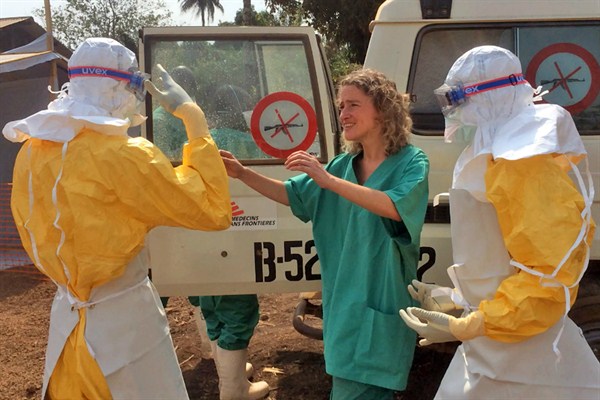An ongoing Ebola outbreak in West Africa, already the deadliest in the history of the disease, continues to spread, with 964 confirmed cases and 603 deaths. In an email interview, Jeremy Youde, associate professor of political science at the University of Minnesota Duluth, discussed the international response to the disease, led by the World Health Organization, in Guinea, Liberia and Sierra Leone.
WPR: What conditions have enabled the ongoing Ebola outbreak in West Africa?
Jeremy Youde: Environmentally, deforestation and increased mining activity may have pushed humans into greater contact with bats and monkeys, both of which are suspected vectors of transmission for Ebola. A 2012 article in Onderstepoort Journal of Veterinary Research finds links between environmental changes caused by human activities and Ebola outbreaks. Epidemiologically, Ebola moves quickly, and it takes a long time to extinguish an outbreak. Control measures that seemed effective in containing the outbreak in April and May 2014 may have been lifted too soon, allowing the disease to regain its foothold. Politically, the governments of Liberia and Sierra Leone have announced punitive measures against “holding suspected Ebola cases in homes or prayer houses.” While the intent may be to reduce the disease’s spread, the practical effect is to drive people underground and away from the health system, increasing the chance of spreading infection further.

